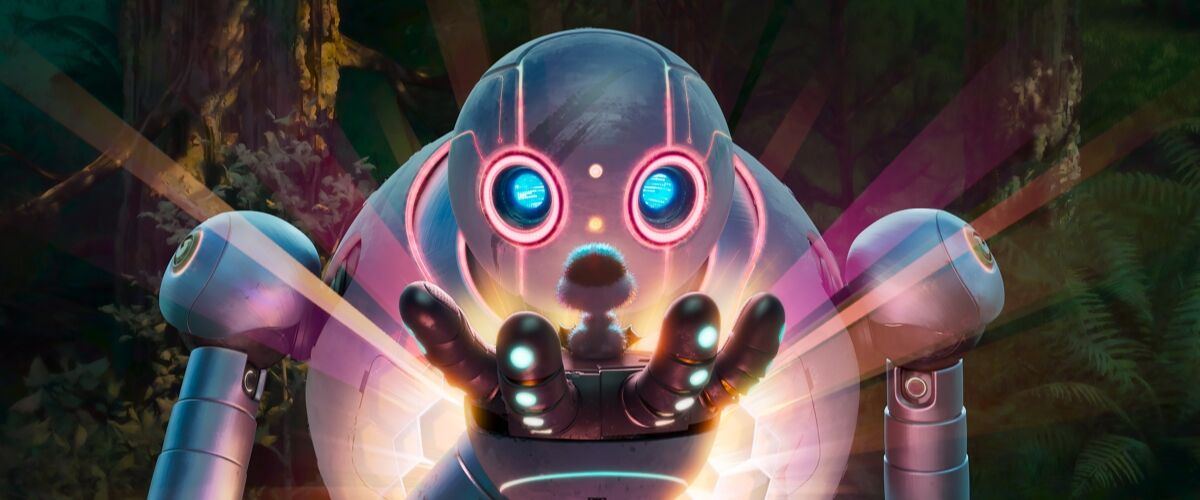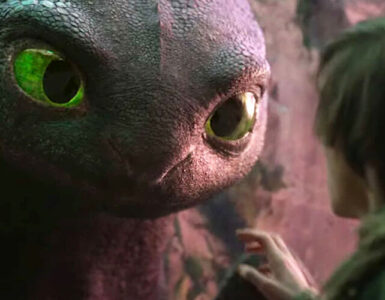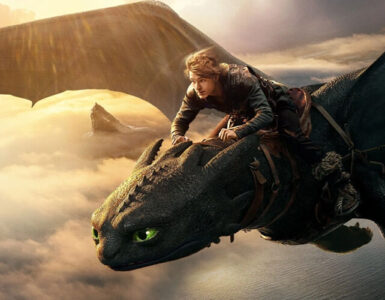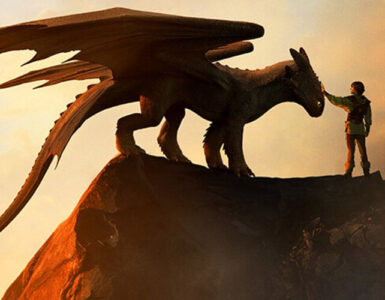When you hear the name Chris Sanders attached to an animated feature, it’s hard not to feel a twinge of excitement. Known for co-directing beloved films such as Disney’s Lilo & Stitch (2002) and DreamWorks Animation’s How To Train Your Dragon (2010), Sanders has a proven track record of creating emotionally resonant, visually stunning animated stories. This time, he’s striking out with The Wild Robot, a DreamWorks Animation adaptation of the first book inPeter Brown’s best-selling novel trilogy of the same name. The film arrives with plenty of anticipation, especially among fans of both the book and the director’s previous work.
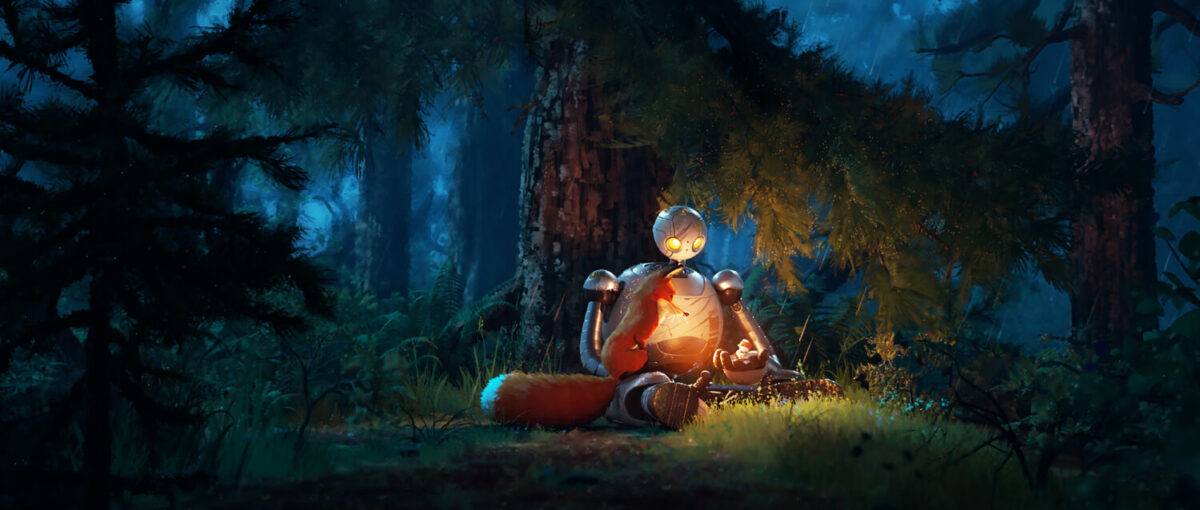
At first glance, The Wild Robot might evoke comparisons to animated classics including WALL-E (2008) or The Iron Giant (1999), where both tales follow an unlikely mechanical protagonist finding their place in the world. It’s easy to expect a familiar narrative, especially given Hollywood’s penchant for recycling well-worn tropes but The Wild Robot quickly defies expectations, confidently sidestepping the pitfalls of derivative storytelling and offers a wholly original narrative and animated experience. Sanders and his team demonstrate a commitment to innovation and artistic ambition, pushing the boundaries of animation and leaving viewers hoping this is just the beginning of more films in the franchise (especially considering the source material’s existing book trilogy).
The film transports us to a lush, vibrant island teeming with a diverse array of animals – bears, raccoons, skunks, foxes, geese, the whole menagerie. Amidst this thriving ecosystem, a sleek android, ROZZUM unit 7134, voiced with endearing charm by Lupita Nyong’o of Black Panther (2018) and A Quiet Place: Day One (2024) fame, crash-lands. Programmed to serve and complete tasks, Roz, as she comes to be known, finds herself in a peculiar predicament: a technologically advanced robot stranded on an uninhabited island, devoid of human masters to guide her.
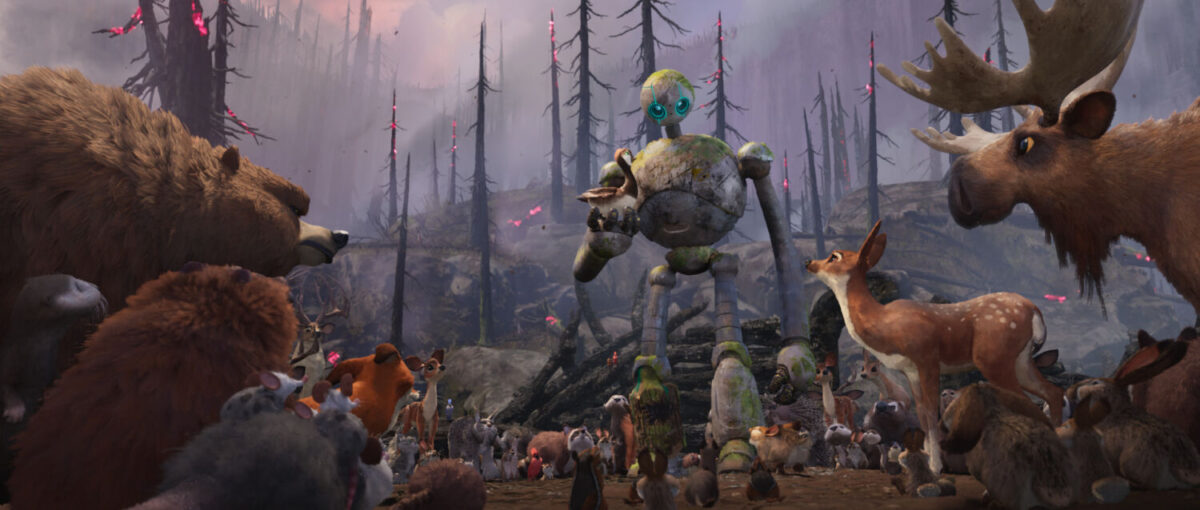
Refreshingly, the film embraces this absence of human presence, creating a narrative reminiscent of early Disney classics like 1942’s Bambi, where a diverse community of animals navigate their unique society and their interactions with this unexpected visitor. Along the way, Roz meets animals along the likes of Pinktail, an overstretched possum mother hilariously portrayed by Catherine O’Hara (Beetlejuice Beetlejuice, Argylle), the British-accented beaver Paddler (Matt Berry, What We Do in the Shadows), and a gruff but gentle grizzly bear voiced by Mark Hamill (Star Wars: Episode IV – A New Hope). Despite the animals’ clear lack of need for her “integrated multi-faceted task accomplishment”, Roz persists.
Patience, thankfully, is one of Roz’s virtues, aided by her non-biological constitution. She settles into her temporary forest home, determined to learn the various animal languages and customs of the surrounding, and now, semi-anthropomorphic creatures. While a censor on her head could activate and signal her location to her potentially nefarious human creators, Roz’s inherent curiosity and the wonders of her surroundings compel her to explore. Even after mastering the local languages, acceptance remains elusive. The animals initially recoil, branding her a ‘monster’, though she finds an ally in the cunning fox, Fink, voiced with sly charm by Pedro Pascal (The Last of Us, Narcos).
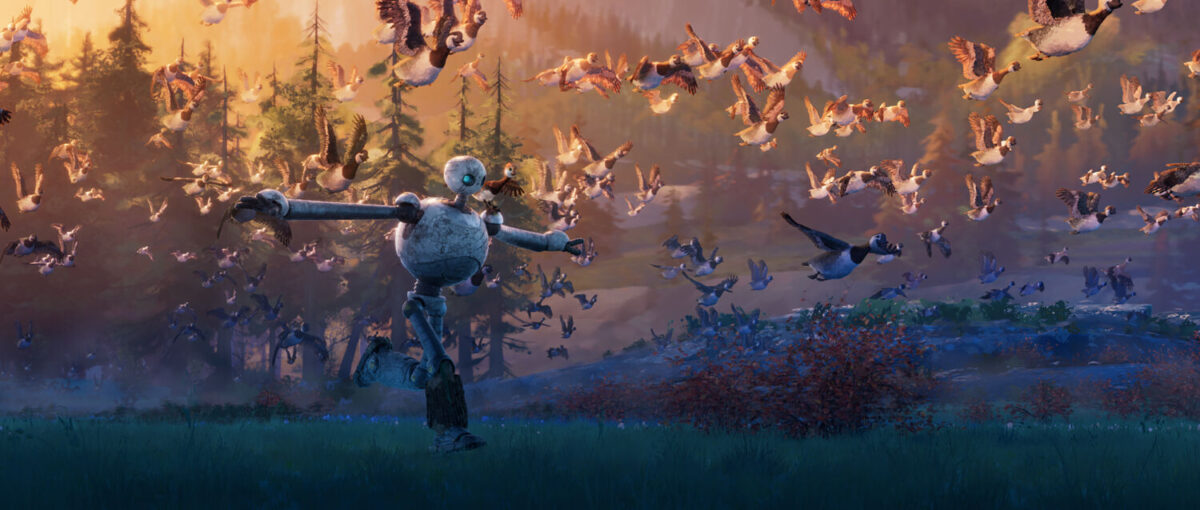
Roz’s persistence pays off when she becomes the unlikely caretaker of a gosling, Brightbill, voiced by Heartstopper’s Kit Connor. Brightbill, orphaned and alone, imprints on Roz, causing her to navigate the complexities and challenges of what is essentially motherhood, teaching him essential survival skills like eating, swimming, and flying in preparation for the upcoming migration. Brightbill, in turn, teaches Roz about the profound exploration of maternal love, an emotion Roz is unprogrammed to experience but grows into as her journey unfolds. While this might sound sentimental, the film handles these themes with sincerity and charm, avoiding excessive melodrama. A pivotal moment arrives when Roz enlists Thunderbolt, a falcon voiced by Ving Rhames (Mission: Impossible series), to teach Brightbill the art of flight.
As Brightbill flourishes and embarks on a journey of self-discovery, Roz grapples with her own identity and the limitations of her artificial existence. Doubts about her capacity to truly nurture and bond with Brightbill surface, challenging her robotic nature and sparking an internal debate about the nature of love and maternal instinct. The film cleverly navigates these themes, presenting Roz’s existential dilemma with a sensitivity that resonates deeply. Nyong’o’s vocal performance is pivotal in bringing this struggle to life, evolving Roz’s voice from the clinical tones of a machine to a timbre rich with burgeoning warmth and emotion.
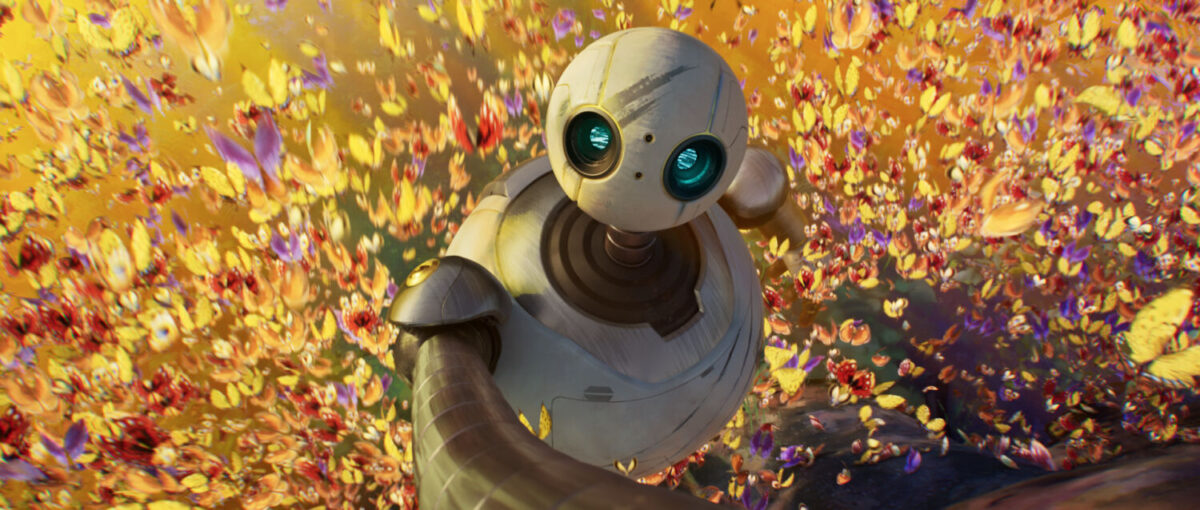
This evolution is central to the film’s emotional resonance, highlighting Nyong’o’s exceptional ability to convey deep vulnerability through voice alone. Director Sanders capitalises on this strength, weaving a narrative that’s as visually striking as it is emotionally stirring. The animation eschews glossy photo realism for a more stylised approach that harkens back to the whimsical illustrations of classics like The Iron Giant and the fantastical realms of Hayao Miyazaki, adding a layer of charm and nostalgia to the visual experience.
With its breathtaking animation, nuanced storytelling, and powerful emotional core, The Wild Robot transcends the typical animated fare, offering a poignant and unforgettable story that will resonate with audiences of all ages. Dreamworks Animation has undoubtedly struck gold with this adaptation, and with a wealth of source material waiting in the wings, the future looks bright for The Wild Robot and its potential as a beloved franchise. If there is one hiccup, it’s that this film has been announced as the final film that would be animated in-house at DreamWorks, which means that any sequel will be further challenged not by the source material, but by the ability to match the visual brilliance that this film has achieved.
GEEK REVIEW SCORE
Summary
A refreshingly original tale, The Wild Robot transcends familiar tropes to deliver a heartwarming and visually stunning exploration of family, love, and what it means to be human.
Overall
9.5/10
-
Story - 9/10
9/10
-
Direction - 10/10
10/10
-
Characterisation - 9.5/10
9.5/10
-
Geek Satisfaction - 9.5/10
9.5/10

